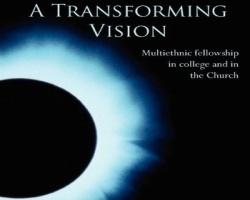Music is among the most personal and charged elements of any worship service. It is one of the cottage doors that either welcomes us in or locks us out of authentic fellowship. Its variation across racial, cultural and generational lines can be a blessing and an obstacle for church unity. As worshipers, we grow comfortable and attentive when we are familiar with music in a church setting; but when we hear songs and styles that we fail to recognize, the space around us can turn threatening or unfamiliar.
We may even experience worship as an anxious struggle to fit in, rather than a time of true spiritual and emotional openness. Building authentic, multiethnic community requires that we overcome these challenges, but doing so requires shared sacrifice and informed commitment from worship leaders and the congregations they serve.
Everyone has a cultural background, and each of us has been shaped by our racial and cultural realities.
We may not always be conscious of this process, but we all bring racially and culturally formed identities to our places of worship. Spiritually, worship allows us to transcend our differences by encountering God together, but socially, it also offers us a cultural haven.
Whether we know it or not, how we relate to God has as much to do with our cultural ties as it does with who God is and how he operates. Consequently, styles of prayer, praise, worship and expressions of faith vary dramatically from one ethnic group to another. These differences can be difficult to bridge because they both reflect and grow out of our culturally specific needs and expectations. Most people come to a faith community with deep, personal needs. For minority worshipers those needs often extend beyond the religious sphere.
Specifically, they may seek out a place that affirms their traditions and offers them a sense of cultural belonging—a community that gives them a voice. Majority worshipers do not typically look for these elements in a church or fellowship because much of society is already arranged to fit comfortably with their cultural experiences.
Multiethnic fellowship requires that majority and minority cultures gather together in worship, but often this leads to tension that can be difficult to manage. Most of us prefer to worship in our own musical styles because these provide an intimate and familiar pathway for accessing God. New styles and traditions may confuse us or make us uncomfortable at the very moment when we long to feel settled and at home. This distrust or distaste for the unfamiliar is among the largest barriers to a cohesive and effective praise experience, and is the largest reason that the church remains among the most unofficially segregated institutions in America.
How can a praise team honor distinct cultural needs and experiences while still creating an atmosphere that fosters unity and emphasizes Christ? What are the benefits of a racially and culturally diverse community of worship, and do they really outweigh the pain and inconvenience it takes to build one? Successful multiethnic worship ministries must grapple with these difficult questions together. Only then can they lead their congregations into effective and authentic multiethnic worship.
Adapted with permission from A Transforming Vision: Multiethnic Fellowship in College and in the Church by Paul Sorrentino (IVP). The book is available at leading book stores including Amazon.
Related Articles:
Why Do I Care About Racial Reconciliation?
Moved to Action
White People Worship?
Where Everyone Is Uncomfortable, and that’s OK
A Different Ministry Model
Leading a Multiethnic Fellowship
A Case for Continuing Monoethnic Minority Fellowships




